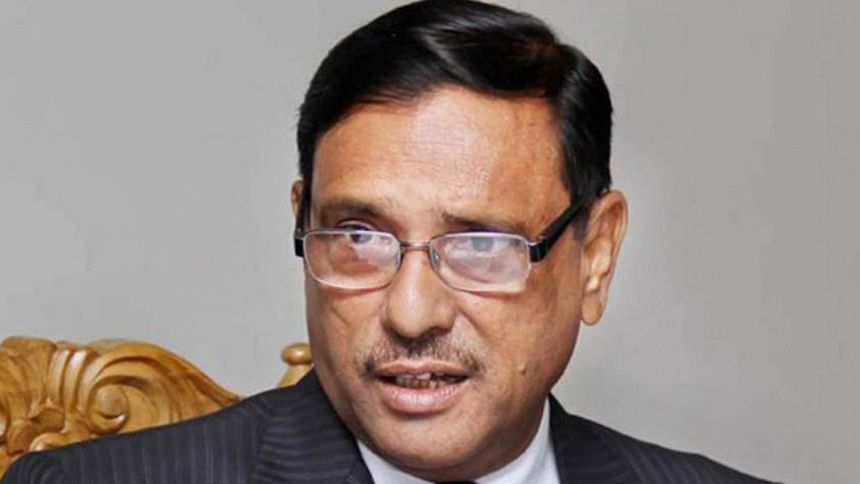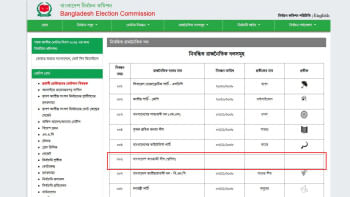Poll-time govt likely in Oct: Obaidul

General Secretary of ruling Awami League Obaidul Quader today said that there is possibility of the poll-time government formation in October.
Talking to the reporters, Road Transport and Bridges Minister said the poll-time government will be formed after the Election Commission announces the election schedule, reports UNB.
Quoting Quader UNB reports that it would not be a new government rather the incumbent government will take charge as the poll-time government but the size of the cabinet will be smaller.
Over BNP's movement he said "BNP does not have any preparation for launching movement, people will not respond to their call."
About BNP's participation in the next general election, Obaidul said "If BNP doesn't participate that doesn't mean it'll be unilateral polls. Many other parties will participate in the polls and it will be an inclusive one."
The minister wondered why BNP is afraid of taking part in the national polls when the party is participating in the elections to the city corporations.
Over the conditions of roads across the country, Obaidul said all the problems of roads and highways will be resolved rapidly. People had comfortable journey during Eid-ul-Fitr, similarly they were preparing for safe journey during Eid-ul Azha.
On the completion of four years of the current government on January this year, Prime Minister Sheikh Hasina in an address to the nation said the next parliamentary election will be held under a polls-time government in line with the constitution, meaning she will hold the office of the head of government during the election.
Earlier in January last year, an AL delegation led by Hasina placed the same proposal before President Abdul Hamid during talks initiated by him over the EC's formation.
In addition, the AL suggested empowering the EC with supervising authority over the administration, law enforcement agencies and all other departments engaged in the election process.
However, no further discussion was held on the proposals in the last one year.
The last caretaker government was constitutionally barred from making any policy decisions. Its size was also fixed by the constitution.
But there will be no such constitutional bar on the polls-time cabinet led by Hasina.
Introduced in 1996 through a constitutional amendment, the caretaker government was constituted after the then partisan government's tenure expired.
Comprised of a chief adviser and 10 advisers, it had jurisdiction to carry out only routine work. Its main functions were to provide the EC with all sorts of assistance to hold free and fair parliamentary elections.
However, the non-partisan caretaker government system was abolished in 2011, generating a political crisis which resulted in the holding of a one-sided election in January 2014.
Amid growing political crisis before the 2014 parliamentary election, the then PM Hasina proposed forming an all-party election-time cabinet, and offered the then main opposition BNP to join it and take ministerial portfolios of its choice.
But the BNP rejected the offer. Defending the decision, some of the BNP-led alliance leaders referred to the PM's absolute power to overrule decisions of the ministers.
Against this backdrop, some eminent citizens at a meeting with the president in 2013 proposed limiting the PM's power by amending the government's rules of business.
In November 2013, Hasina formed a polls-time cabinet of 29 ministers with MPs from the AL, the Jatiya Party and the Workers Party.
The BNP boycotted the 2014 parliamentary election.
The crisis remains unresolved till date. With the next parliamentary election getting nearer, the issue of the mode of election-time government is dominating the political landscape as the BNP continues to demand a neutral polls-time administration.

 For all latest news, follow The Daily Star's Google News channel.
For all latest news, follow The Daily Star's Google News channel. 




Comments